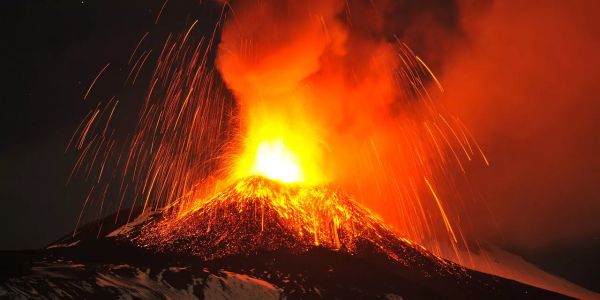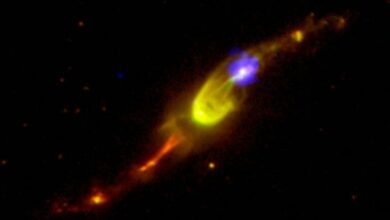
Probability of a powerful volcanic eruption this century is one in six
(ORDO NEWS) — In 1815, Mount Tambora erupted in Indonesia, killing 100,000 people. But this was not the end of the matter.
Because of the soot thrown into the stratosphere, the average temperature around the world dropped by about one degree.
Harvests dwindled, the summer turned cold, and in the Gothic twilight of the frozen Alps, Mary Shelley sat at home writing her Frankenstein.
According to scientists, with a probability of one in six, a volcanic eruption of the same scale can be repeated in the current century. And people are not ready for it.
In the journal Nature, British scientists wrote that the world is “horrifyingly unprepared for such an event,” which could have “impacts on supply chains, climate and food supplies around the world.”
Michael Cassidy, Professor of Volcanology at the University of Birmingham, and Lara Mani of the Center for Existential Risk Studies at the University of Cambridge, compare efforts in this direction with efforts to counter the threats that come from space.
“Over the next century, massive volcanic eruptions are hundreds of times more likely than asteroids and comets to hit Earth combined,” the scientists write. “The effects of these shocks on climate are comparable, but the responses are radically different.”
While NASA is allocating more than £200 million to asteroid deflection projects, no investment has yet been made in preventing or mitigating large magnitude eruptions.
Improved tools for predicting such events could help mitigate their impact, the scientists say.
“Recommendations can be sent via SMS: for example, advise clearing the roof of a house to prevent its collapse, since volcanic ash is expected to fall up to 50 centimeters thick within the next two hours,” the experts suggested.
Countries, the scientists continue, could agree on how to transport food and fertilizer in the event of a sudden drop in average temperatures, which could have a devastating effect even in a warmer climate.
“Although the cooling effect of sulphate aerosols in the stratosphere may be partially offset by warming caused by greenhouse gases, the impact of a powerful volcanic eruption will be sharp and massive, and its impact on weather, precipitation and temperatures will be uneven.”
Over time, we may find that eruptions are not at all inevitable, scientists say. Perhaps people will be able to find a way to drill wells all the way to the magma to relieve pressure.
“Directly influencing the behavior of volcanoes may seem unthinkable, but until recently, asteroid deflection technologies seemed just as unthinkable.”
—
Online:
Contact us: [email protected]
Our Standards, Terms of Use: Standard Terms And Conditions.









